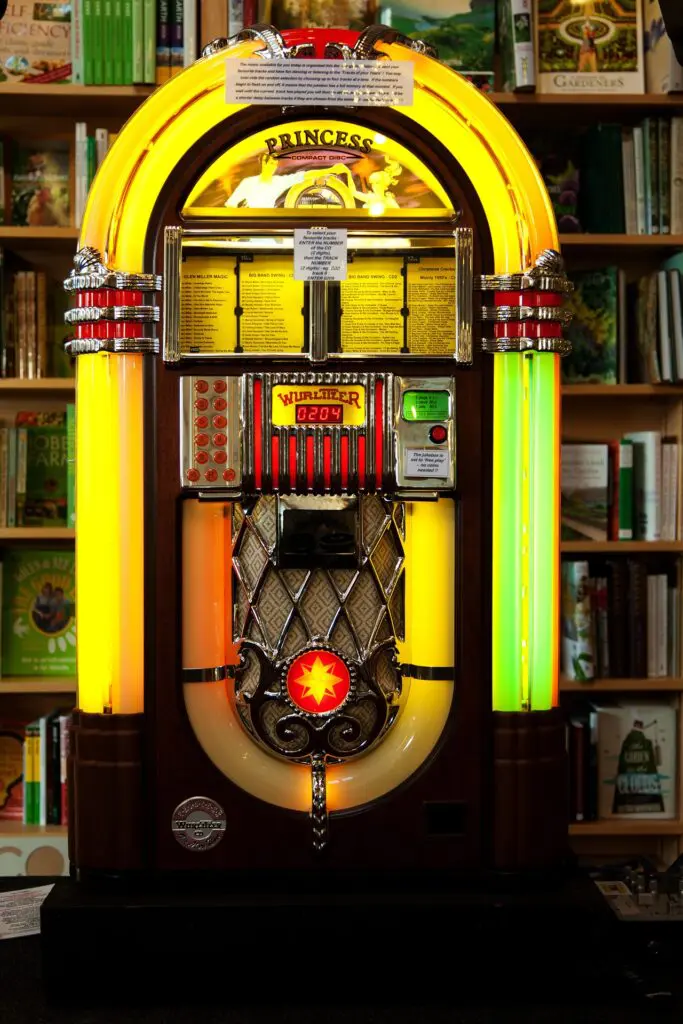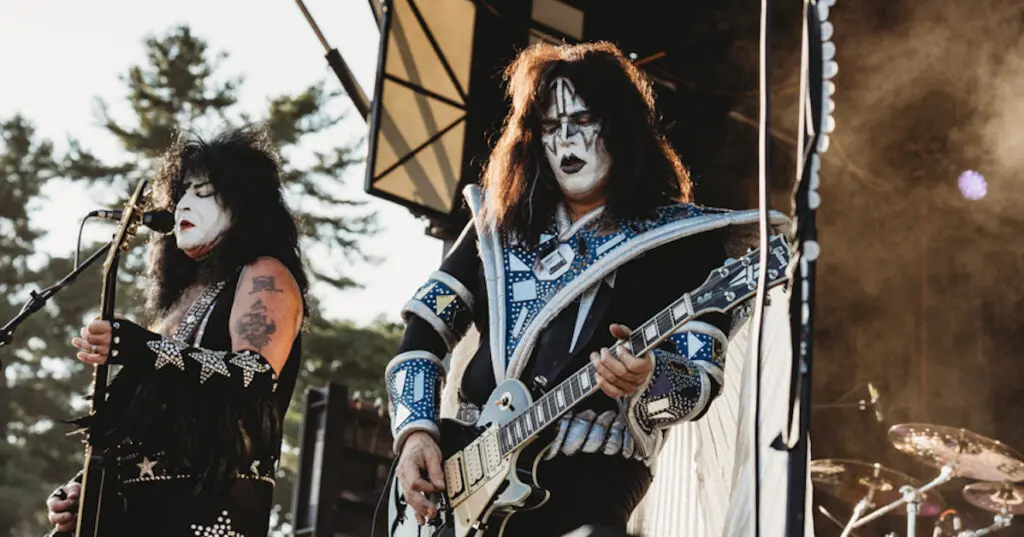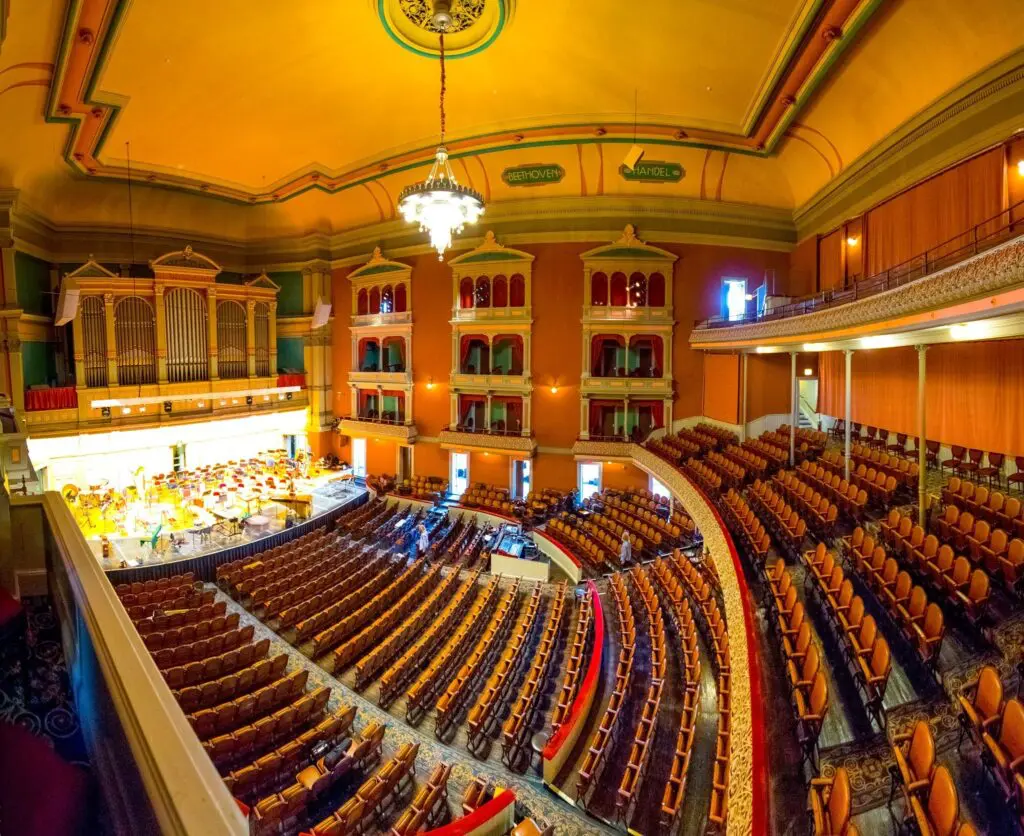Art Along the Aether, Chapter Seven, Xperience Fiction
By Staff on October 7, 2024
Art Along the Aether, Chapter Seven, Xperience Fiction – by Liam Sweeny.
God said “Let there be light,” and in the presence of that light, he read. To His left and to His right were the hollowed-out husks of mini-kegs filled with something like gasoline that didn’t smell like it, trading that overpowering nostril-buster with a woodier paper and cinnamon mix. As Ollie and Sarah stood there, the Poet came, papers in arms turned to crumpled papers in hand, soon to be burnt offerings. Her poems. Her words given life in pigment and sacrificed in the temple for the atonement of sins that no one knew anything about. Was she the High Priestess, or simply God’s only friend?
Ollie felt dirty oil in his veins, liquid cement short circuiting the spaces between his synapses, disallowing sparks. He felt the way he felt when his doctor followed up on the Lithium dose his Bipolar earned him like door number two in an episode of “You Bet Your Life!” He wished he could lay the blame on the pile of patchwork sweatshirts but ever since he’d quit he had these feelings wash over him.
Sarah tried to catch the Poet’s ear as the attempt carried her and Ollie both out of the makeshift Throne room and into the cacophony of generators in the main area. She tried to collect Juli, who had sat cross-legged across from the Throne, but Juli waved them off. They shouted pleasantries and earnest pleas.
“I gotta get Juli out of here,” Sarah said. “What’s with her? She just waved me off.”
“She’s reading a book that God gave her,” the Poet said. “I don’t think you’re going to get her until she’s finished it.”
“What book?”
“It’s a cookbook,” the Poet said. “About consciousness.”
“Is it Chicken Soup for the Soul?”
“That’s it, I believe.”
Sarah planted her hand on the Poet’s shoulder. “I can buy her that one at the store.”
“But God highlighted it.” The Poet sorted through her remaining papers. “The theft of our book destroyed her. And God’s just trying to put her back together again.”
They walked the Poet to an area of the third floor that was quieter, a break area barricaded with mattresses fastened to the walls.
“I don’t get it,” Ollie said. “Your book. I know you almost sacrificed it, and then God saved you, and then it got stolen? I don’t mean offense, but why was it important enough to steal?”
“No book written by me would be important enough to steal, you’re correct.”
“I didn’t mean it like-,”
“No, you’re right. No one person here would write such a book. But all of us wrote it. I spent years pulling the most imaginative, gut-wrenching stories from our citizens here, and I wrote the stories down in poetry and prose. It was the most beautiful, most real thing you could ever have an inkling of.”
“That’s cool, but it’s still just a book.” Ollie scratched the back of his hand. “Can’t be worth much.”
“How much worth is a thing that inspires Lenny to sing, that implores Jenny to go either or, that changes the course of events of the horse that depends upon which it rides?”
“It sounds confusing,” Ollie said.
Poet gives Ollie a piece of blank paper. “It’s magic. Each reader finds different stories in it, each find different things to make a part of themselves. Imagine a funhouse mirror that changes the formula with everybody who stands before it?”
“So who stole it? I mean, do you even know?”
“The specific person, no. We say a tourist because no way a person from here would do it. But there’s been talk of braggadocio and back-slapping at the Gallery that they found something rare. Something they deign to call “underground.”
The Gallery. Not a real gallery. A building much smaller, and much nicer than the warehouse, a “scene” for those with the money and cache to plant their flag on any landfill and declare it a scene.
Ollie and Sarah, Deke and Harry had played there before, one of the weirdest shows they’d played, including playing in the slop pit of a pig farm. Wine and cheese, lates and cappuccinos, soft cushions and high-ticket canvases covered in circles and splotches. When Permasoul played there, they were highly praised, but it felt like they were a dish of rhinoceros brains, more beloved for their absolute rarity in that place than their appeal. In fact, many of the people at the show danced. Not moshed; danced.
“You sure it’s at the Gallery?”
“I’m not sure the sun will rise tomorrow,” the Poet said. “But I’d give them even odds.”
Sarah took a breath. “If we can get Juli to come with us, we can go to the Gallery to suss it out. We’ve been there before. We can get in.”
“I can’t force Juli to do anything,” the Poet said. “Not even God would. But I can tell her. If I promise to do that, will you go find our book?”
They waited for the Poet to talk to Juli, which, judging by the time they waited, was a discussion. The doctor, busy keeping the generators functional, kept them company.
“The police are going to come here,” he said. “Roust everybody, tear everything down, including these generators, and the shelters and the hospitals are going to surge till Christmas. People are going to die, and by January 1st, we’re all going to be back here starting over.”
“That’s sad as fuck,” Ollie said.
“It’s important,” the Doctor said. “It’s why you need to find that book. There are whole generations in those stories. People who are dead now. Some of it is the only proof they existed.”
The door creaked and the light leaked through and the Poet came out with Juli, her long pink hair gathered over one shoulder. She clutched her book tightly, and gently, the Poet helped her release it.
“We’re counting on you,” the Poet said. “We’ll be moving God in a couple of days. After that, I don’t know where we’ll all be.”
The bus stop was a no-name, no-shelter aluminum sign on a thin square pole punctured on all sides with holes. Sarah held Juli, Ollie held Sarah, and the air held more thick, flaky snow than it had when Deke had pulled over for them on Wolf Road. They knew not whence the bus came or how many minutes would the bill machine spend on taking their crumpled fare. If they were lucky, the driver would be impatient and take off while they were in mid-pay, which might work out their way if they reached their destination before the machine had whet its whistle on reject singles.
Juli had been quiet the whole way from the warehouse to the bus stop, but in the still of the wait, she found words.
“It’s black,” she said. “It’s the size of the zine the pirate radio station puts out, square like that, but with binding, stuffed full of paper.”
“The Poet’s book, you mean.” Ollie craned his neck down the street. “It’s really good, isn’t it. I mean it fucked you up.”
“Don’t say fucked her up,” Sarah said. “That’s rude.”
“It’s accurate,” Sarah said. “I gathered it all up for her. What she did was beautiful.”
“So we play cop.” Ollie forms his fingers into a gun. “Flip over tables, interrogate those assholes at the Gallery. Even though it probably ain’t there no more.”
Juli stiffened up so quickly that Ollie felt it through his embracing of Sarah.
“I know you guys probably don’t care about some book that a bunch of freaks put together in the warehouse,” she said. “but it isn’t just that. There are things to that book.” She adjusted her pink and white fifth-hand ski jacket and pulled her sleeves tight. “Trevor. Trevor Marzyk. He came here from the city; the Bronx, I think. Nobody knew him, nobody at all. He went in there looking for dope, and he got in the pit like people do.”
Juli pulled a cigarette out of her pocket and lit up. “He’d shit on the floor and steal coolers and cause problems. Shitheels was going to boot him, but the Poet sat with him instead, read him what she had of the book at that point, which was maybe half. And he opened up slowly.
Juli took a drag and Ollie caught the B-side. “Turns out, he was a firefighter that saved like twenty people from one of the towers on 9/11,” she said. “He ended up telling the Poet all the codes he heard that day on his radio. Those codes are in the book.”
The cab of an eighteen-wheeler passed by carefully in the ascending snowpack.
“He died in the beginning of the year,” she said. “Those codes are all that are left of him now. That book is magic, like the Poet says, she says it’s magic and it’s right. How powerful are the lost codes of 9/11? How much of a talisman are twenty near-death experiences written in verse? How much sorcery can come from the last will and testament of a door-to-door salesman who became an archangel one morning driving down the highway? Is that magic? Is anything else magic if that isn’t?”
They didn’t say much until the bus came. There wasn’t much to say. Ollie didn’t believe in magic or sorcery, but neither did he believe himself to be an avowed expert on the validity of the occult. Maybe a book could be magic. It could definitely be valuable, and it was clear the book was one-of-a-kind. And the thought, even the notion, that the book was being passed around in a place like the Gallery was foul.
Every pretentious face in the metro art scene had their name written somewhere in the Gallery’s walls. Names dropped and swept off the floor by a janitorial staff that put on their own airs. Anyone who “made it” in the city got the plans for it in a handshake on the second floor. And unlike the warehouse, there was no God on that floor, seeing as how everyone that called the place cozy entertained the notion of being God themselves.
The bus pulled up, fluorescent through rounded-square windows, flattened dioramas, quiet interludes of a solid day’s grind. They answered the hydraulic gasp with timid steps and dollars twice pressed to service in a hungry motorized maw. They paid and one by one they plodded to the back, to the one model that had its side-facing seats rendered in plush. The bus rose and lurched and they knew they’d have to fashion a decorum for the next twenty minutes.
“Are you sure you guys can get in the Gallery?” Juli said. “I know how exclusive it can be.”
Ollie let out a laugh. “They got a weak spot for authenticity,” he said. “They don’t know what to do with it, so they make like they discovered it. We’ll get in. And if your book is there, that’s probably also why.”
Ollie glanced around the bus and told stories for the people. The mother of the smartest kid in fifth grade stroked her head as she took her to her music classes in the only way she could, a nightly sacrifice that would pay off in ten years at Carnegie Hall. A construction-worker with a taste for eighty-proof worked of his first DWI six feet in front of them. A young couple, too young to have their affections known to their parents, caught the same bus by coincidence, and had for the past week. And in the back, the lonely man, who, were the bus a lot emptier, might be on the prowl for a night’s adventure, clothesline and a folding knife in the duffel bag sitting next to him.
They kept the chatter to just chatter, mostly Ollie and Sarah reassuring Juli that they wouldn’t be left standing at the Gallery door. It was on the way there that Juli told Ollie and Sarah that she was a painter, child prodigy with parents that couldn’t hand her the moon in oils, high school outcast, the winningest loser. She questioned Ollie and Sarah’s entrance to the Gallery to answer her own denial many times.
The 22 bus slid in slush and street pus on the corner across from the Gallery, so shall see all the patrons with window seats the downtrodden departing, and should any three of them cross the walk and situate themselves in line, that’d be fine. That’d be game for the muscle-bound, brand-name black-shirted bouncer with a clipboard colored the same, with a linen-paper list that served no function at all since everyone on the list was already inside.
The Gallery was a brownstone with grey stones, wide, tall, massive – three stories, expansive arched windows in the front. A set of neon signs that looked old were really “new-old,” and the video-cameras covering every possible angle were brand new. The front steps going up were sealed off with a wooden barrier, and the entrance was to the basement level. The line was mercifully short, not more than three buildings of hopefuls, waiting.
The bouncer walked the line to the cadence of the overhead speakers singing coconuts and limes and with hip thrusts he thinned the line one less worthy than the other. Dirty hands that scented soap couldn’t wash clean? Bounce. A tattoo of a heartbeat just a hair too far over the wrist? Bounce. An affect of attire or comport that may impart a tale of woe that wouldn’t mold into a trendy Beat pastiche? Fuck. Outta. Here.
The bouncer got to Ollie and Sarah and looked them up and down. Juli cowered behind.
“Oh, you have got to be kidding me,” he said. “Heroin chic has been out for a while, kids.”
“Look, I’ve been in here before,” Ollie said. “I sing for Permasoul. Sarah here plays bass and sings. And the woman behind us is… she’s our roadie.”
“I saw Permasoul,” he said. “I saw them here. I had a drink with the lead singer. Don’t you think he’d remember me?”
Ollie was doing fentanyl that night. If he hadn’t also done a line of coke in the bathroom just before, the floor would’ve been his only memory.
“Like you said, heroin chic,” Ollie said. “Sorry I don’t remember you.”
“So you’re saying I got it wrong?”
Sarah unraveled herself from Ollie, getting Eskimo kiss distance from the bouncer.
“Look, we’re Permasoul, and you don’t get us in, we’re going to tell everyone in the underground that The Gallery is a poser joint that can’t tell the difference between two punk bands.”
The bouncer pondered the street to the left and the street to the right, taking a second to ponder his thin silver belt buckle.
“I’ll bring you to the front,” he said. “Not letting you in, but we’ll make sure you are who you say you are?”
“Who the fuck would say they were Permasoul as a brag?” Sarah whispered to Ollie.
They were next in line. A woman in big wide glasses, blond streaks in dark, shoulder-length hair sat behind a card table covered in black velvet, upon which sat a cash box and a pile of silver medallions, looking an awful lot like the gold artist medallions targeted by Silver General.
Sarah picked one up, caught a glance from the seller, and set it down.
“Is this the artist’s medallion the city is talking about?”
“Yes,” she said. “Well, this is the silver medallion. You need to be sponsored to get the gold medallion, but you need the silver one to get sponsored.”
“And who sponsors them?”
“Anyone who has a gold medallioin.”
Sarah scoffed. “So who sponsored the people who already have gold medallions?”
“Oh, that was the city, coordinating, of course, with about twelve different arts councils. It was all very fair, I can assure you.”
“So it wasn’t like a vote by people in the city.”
“Oh God no,” she said. “What do they know about true art? They’d vote for a turnip, or one of those graffiti artists, vandals. This means real artists get in.”
Ollie pointed to the medallions. “So how much is one of those?”
“It’s seven hundred and fifty dollars,” she said. “Which is reasonable, because of the opportunities it can afford you.”
“Yeah, ‘afford,’ and those who can’t afford get assed out.”
“City art contracts are open to everybody who lives in the city. Everyone still has access to art projects.”
“Yeah, that’s a fun word, ‘access.’” Sarah said. “I have access to free brain surgery in Canada. Only problem is actually getting there.”
“Ollie, Sarah, Roadie, Permasoul.” They glanced over to see that it was their time to meet the doorman.
“Okay, Oliver Switzer. What is the name of your first festival as a band?
“Shitshow,” Ollie said.
“Wrong.” The doorman looked like a dollar store clearance version of Elton John that made up for originality with snark. “It was called-,”
“The Lehigh Valley Music and Arts Festival,” Sarah said. “We call it the shitshow. Everybody that actually played it called it that, but I guess you wouldn’t know.”
“Fine. So, okay, I got this… The song ‘Blood Orange,’ you sang the words, ‘I keep walking the main line from Memorial to AMA.’ What did that mean?”
“How does this prove I’m me? I could make up anything.”
“Just humor us.”
“Okay, I was in and out of Memorial Hospital for shit related to doping, and I kept leaving against medical advice, or A.M.A.”
“Okay, fine. You all can go in.” The doorman waved them over to the front doors while the bouncer went back up and down the lines.
“How do you know I was telling the truth about the song?”
“I didn’t.” The doorman swiveled his laptop around, giving Ollie and Sarah a clear view of a picture taken of them at Shitshow.
“So you’re just fucking with us.”
“So just. Don’t hold up the line.”
Ollie glanced down at the stairs to the front doors and reached for Sarah’s hand, more worried about her here that he was in the back alleys of the South End, because there, you had a chance of being left alone if you weren’t looking for trouble. He found her hand and Juli must’ve found her other because they entered into the Gallery like a snake in the garden.





 RadioRadioX
RadioRadioX